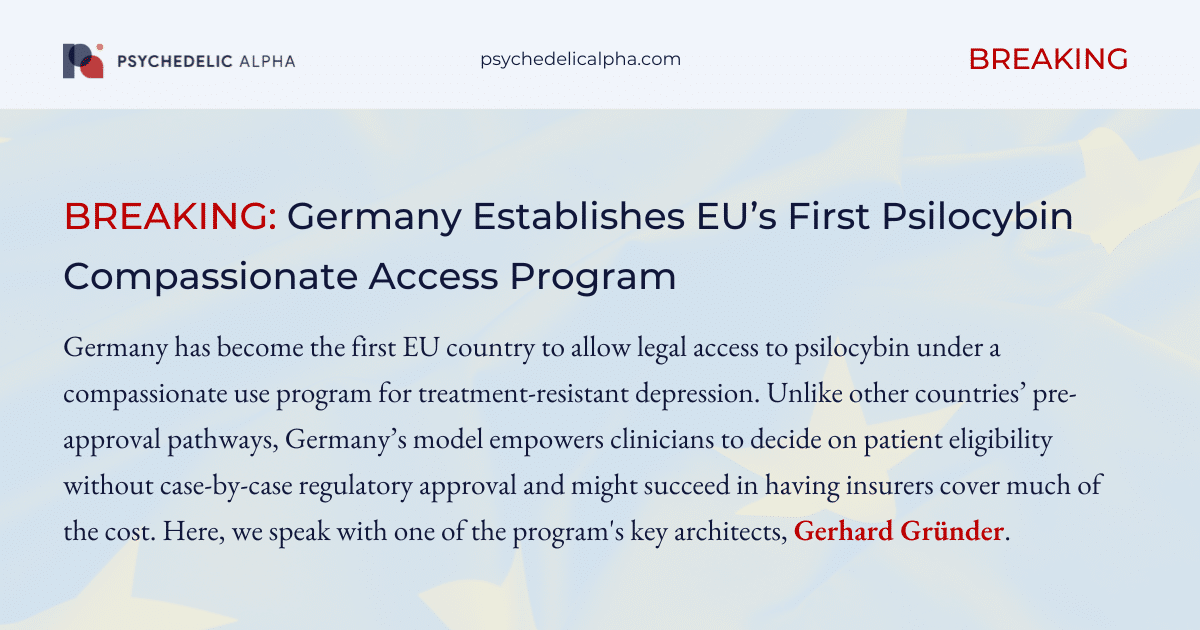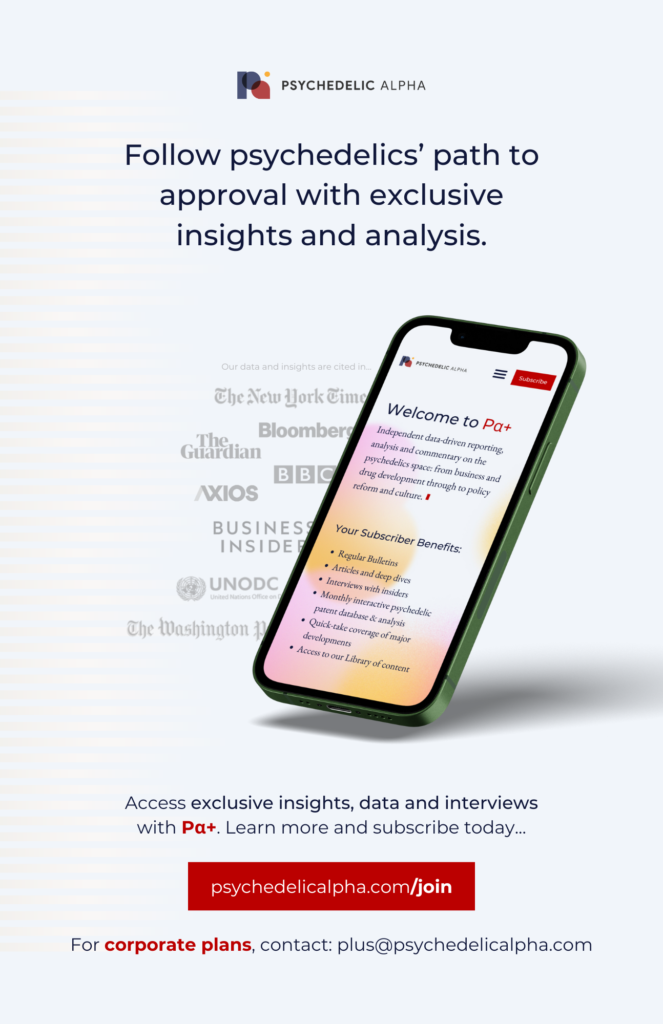Germany has become the first country in the European Union to allow legal access to a psychedelic, under certain conditions, prior to regulatory approval.
Through a newly established compassionate use program—which has received the blessing of the country’s drug regulator, the Federal Institute for Drugs and Medical Devices (BfArM)—two facilities are now able to offer psilocybin to adults with treatment-resistant depression (TRD).
Those two clinics, the Central Institute of Mental Health (CIMH, also known as ZI Mannheim) and the OVID Clinic Berlin, expect demand will far outpace capacity. There, psychiatrists will admit qualified patients to receive Filament Health’s botanical psilocybin candidate, PEX010, in the context of a broader psychiatric care protocol.
Psychedelic Alpha spoke with Gerhard Gründer, who submitted the successful application and will lead the roll-out of the compassionate use program, to learn more about this development.
***
Reporting by Josh Hardman.
Germany Joins Canada, Switzerland in Allowing Compassionate Use of Psilocybin
This new compassionate use program1 is in some respects similar to pathways that exist in Switzerland and Canada, where patients can access certain psychedelics in exceptional circumstances.
In Switzerland, which is geographically European but not a member of the EU, a system for allowing the legal use of psilocybin along with MDMA and LSD in certain situations was established in 2014. The drugs remain unapproved, but physicians can apply for an exceptional authorisation from the Federal Office of Public Health on a patient-by-patient basis.
The number of patients accessing psychedelics through that carve-out has increased substantially in each of the last five years, but remains relatively modest in absolute numbers. In 2024, Swiss regulators granted just shy of 700 exceptional authorisations for patients to use LSD, MDMA, or psilocybin (psilocybin was the most popular, representing 322 of the approvals).
In Canada, healthcare practitioners can also apply for a kind of exceptional use permit on a case-by-case basis. As we covered in Bulletin 203, however, the administrative burden associated with such applications, as well as a lack of infrastructure to deliver psychedelic therapies, has limited uptake, according to Health Canada data. What’s more, approval rates have dropped substantially between 2022 and 2024.
While these are the two most similar programs to Germany’s, pre-approval pathways do exist elsewhere.
As we have reported, Australia and, more recently, New Zealand have created pathways for certain psychedelics to be prescribed prior to market approval. While numbers remain small in Australia, with fewer than 100 patients receiving psilocybin or MDMA in the first 18 months of the program, they are growing. In New Zealand, meanwhile, just one prescriber is authorised to offer psilocybin, but that looks set to expand following the recent publication of guidance for other practitioners.
In the U.S., compassionate use or expanded access is limited to just one case when it comes to psychedelics. In 2019, the U.S. FDA granted permission for a small expanded access program (EAMP1) for up to 50 patients to access MDMA through Lykos Therapeutics, which is developing the drug. Other than that, no compassionate use has been permitted for psychedelics.
What Makes Germany’s Psilocybin Program Unique?
While it is similar in some respects, Germany’s new compassionate use psilocybin program has some unique features.
A key feature is that, unlike in some other systems, where regulators like Health Canada are the decision-makers, the German program allows licensed psychiatrists at one of the two sites to decide whether a patient should be included in the program. “This decision cannot be made by any formal regulatory or governmental authority”, Gründer told us. While psychiatrists may decide on patient participation, Gründer remains the ‘responsible person’ for the program.
This means that it will not be necessary to wait for patient-by-patient approval from a regulatory authority, which could represent a significant improvement over other programs, eliminating a key bottleneck in the patient journey and empowering healthcare professionals to make decisions as opposed to bureaucrats.
What’s more, permission need not be sought for every single dose, Gründer told us. “Our protocol allows us to repeat the treatment in case of non-response to a first dose or to maintain the treatment effect”, he explained.
In terms of that protocol, Gründer said that it was provided to BfArM and includes “very strict” rules, “especially with regard to safety monitoring.” The dosing session, for example, will be “monitored by two trained health-care professionals, including one physician”, he told us.
Those rules “cannot be changed”, he emphasised; “they cannot be relaxed.”
For now, the program is limited to CIMH and OVID. Gründer told Psychedelic Alpha that there is the option to add more sites, in time, but that starting with two sites allows them to establish procedures. “We are assuming that there will be lots of interest from other sites”, he said, but they “have to qualify according to criteria that were communicated to the authorities.”
In terms of patient eligibility, patients with TRD (which means those who have not responded to at least two classical antidepressants that were administered for sufficient duration and at a sufficient dose) must show that participation in a psilocybin trial is not possible.
While he wouldn’t share specific inclusion and exclusion criteria with us, out of concern that patients might conceal conditions relevant to safety, he said that “in general, those criteria are more flexible than in clinical studies.”
Aside from site expansion, might the program grow to include other indications? Gründer said that EU regulations stipulate that such programs are only possible in indications “for which there is sufficient evidence and at least one ongoing Phase 3 trial.” “Therefore, the only other possible indication would be [generalised anxiety disorder], but only with LSD”, he continued.
In terms of scale, the group does not anticipate more than 50 patients in its first year, due to limited resources. “We are allowed to treat more”, Gründer clarified.
Other countries’ pre-approval access programs have faced issues with accessibility due to high costs. But this group believes they will be able to offer psilocybin therapy in a much more affordable manner.
Gründer says that the drug itself has to be provided to patients for free, under the terms of the program, and that the treatment “will be part of an overall treatment plan that includes general psychiatric care at both facilities.”
“It will therefore be covered by health insurance of the patients”, he added.
In terms of data collection, the group says that it is very interested in ‘scientific monitoring’, beyond the ‘detailed reports’ it is obligated to provide to authorities on the program’s progress. “In addition to a variety of psychometric scales that will be used to measure outcomes,” Gründer told us, “there will also be accompanying research that will be site-specific”. That will include imaging studies at CIMH, for example.
“We are of course very much interested in sharing these data”, Gründer added.
Article continues below advertisement…
A Partnership: CIMH, OVID, and Filament
CIMH and OVID appear well-equipped to lead this effort.
OVID’s medical director, Gerhard Gründer, oversaw the first Phase 2 study of psilocybin for TRD in the country, and its close affiliate, the MIND Foundation, runs a psychedelic-assisted psychotherapy training program.
That Phase 2 study (preliminary results covered in Bulletin 164), dubbed EPIsoDE, benefited from millions of euros of government funding, via the Federal Ministry of Education and Research (BMBF). What’s more, OVID has already provided innovative treatments, including ketamine-assisted psychotherapy, for years, under the medical direction of Andrea Jungaberle and Gründer.
Gründer is also Head of the Department of Molecular Neuroimaging at the CIMH, which is itself a leading institution in innovative mental health treatments.
It’s not Filament’s first rodeo, either. The company has received 600 authorisations under Health Canada’s Special Access Program, it told Psychedelic Alpha, 230 of which have been administered to patients. Those cover patients with end-of-life distress, depression, and—in at least one case—cluster headache.
For Filament, it appears to be more of an attempt to prove its capabilities and the quality of its product. It won’t charge patients in Germany for its PEX010 psilocybin candidate, at least to begin with. In Canada, it didn’t charge patients for its psilocybin candidate during the first three years or so, but last month notified practitioners that it would begin implementing a $750 fee per SAP application from August 1st.
CEO Ben Lightburn told Psychedelic Alpha that, so long as numbers remain small, it’s not worth charging people relatively minimal amounts of money. “Nor does it feel right”, he continued, noting the plight of eligible patients under these systems. Nonetheless, as such programs develop, the company says it will look to implement fees.
“Filament Health has always supported safe and regulated access to psychedelics”, Lightburn told us, adding that the authorisation “affirms not just this commitment but also our team’s regulatory and logistical expertise.”
“It has been a pleasure working with the sponsoring team at ZI Mannheim and we look forward to close collaboration on the rollout of this program”, he continued, adding: “While this is not a full drug approval for PEX010 in Germany, it is certainly representative of patient and provider needs in this area.”
There is a small crop of manufacturers that supply psilocybin to these pre-approval access programs. Besides Filament, Optimi Health is another company that has provided psilocybin to be used in Canada’s program, as well as Australia’s.
But Compass Pathways, the most advanced psilocybin drug developer, has yet to provide its synthetic psilocybin candidate to patients via compassionate use or expanded access programs. What’s more, its compassionate use policy makes no commitment to engaging with any such program.
Usona Institute, which is also in Phase 3 of psilocybin but for major depressive disorder (MDD), does not have a published policy on the topic, instead directing interested parties to contact it to learn more. Psychedelic Alpha understands, however, that the company has reigned in its investigator supply program and is not providing its synthetic psilocybin candidate for compassionate use at present.
It might be the case that later-stage drug developers are keen to keep the flow of data on their candidates under tight control, as opposed to opening up the potential for other investigators and clinicians to use their candidates under different circumstances and potentially produce divergent safety data.
Anyhow, this is a moot point for the German compassionate access program as of today, for it is restricted to Filament Health’s PEX010 at present.
Pα: The news that the European Union’s largest pharmaceutical market, Germany, is allowing access to a psychedelic outside of the traditional marketing authorisation pathway is significant.
Speaking on stage in the Czech Republic, and again in Denver2, our Editor Josh Hardman had wondered out loud what might happen if advocates’ ambition to create access pathways to psychedelics like psilocybin outside of traditional marketing approval—such as that seen in Czechia—might spread to more profitable markets in the bloc, chiefly Germany. Might that lead psychedelic pharma to lobby against such moves, in the same way that certain companies have sought to slow the roll on state-legal psychedelics programs in the U.S.?
What Germany is doing here, though, might not be so threatening to psychedelic drug developers. If psilocybin were to be approved for TRD in the country, authorities might deem the current expanded access route unnecessary and close it. Indeed, in CIMH’s statement, it acknowledged that a compassionate use program “is limited in time”. Gründer also told us that he anticipates the program being closed in the case of a market approval. “This program is just for drugs unapproved in the EU”, he said.
If that is the case, this expanded access program doesn’t necessarily challenge psychedelic pharma’s playbook.
What’s more, the number of patients who can access psilocybin through this pathway is likely to be limited, with the group anticipating no more than fifty patients in the first year due to their limited scale.
But this particular program’s potential to be more accessible than others, through not charging patients for psilocybin and aiming to have the wrap-around care covered through insurance, is certainly something to watch.
What’s more, the significance of BfArM’s decision should not be lost on readers.
Germany now joins Switzerland in allowing certain European patients to access psilocybin when they have exhausted other options. The imprimatur of Swiss engineering and German efficiency and process-focus could add to psychedelic medicine’s legitimacy both in the bloc and among the international community.
We might also hope that the program will produce valuable real-world data for the field.
We will continue to cover this story as it develops. ∎
You might also like…
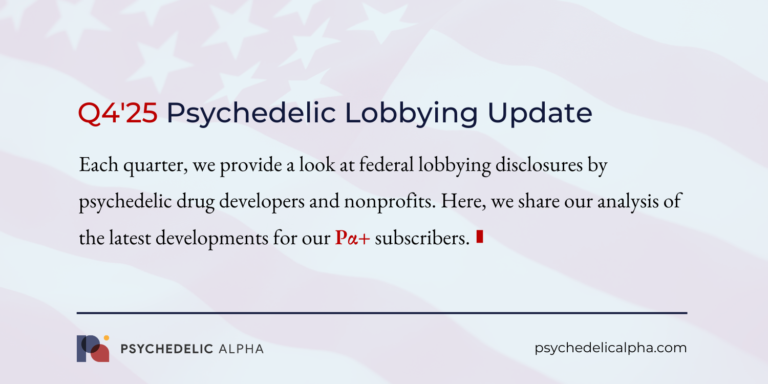
Q4’25 Psychedelic Lobbying Update
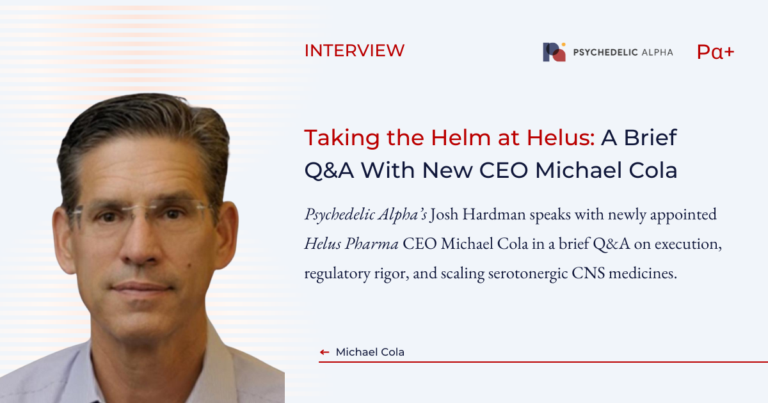
Taking the Helm at Helus: A Brief Q&A With New CEO Michael Cola
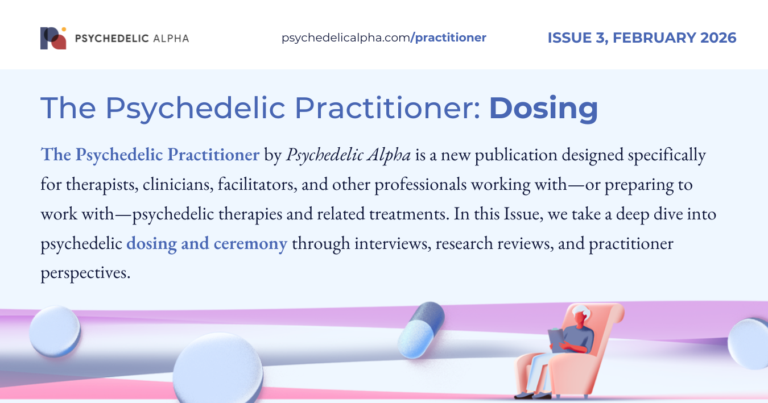
The Psychedelic Practitioner Issue 3: Dosing
- The terms ‘compassionate use program’ and ‘expanded access program’ are used interchangeably.
- And alluded to in Bulletin 200.

